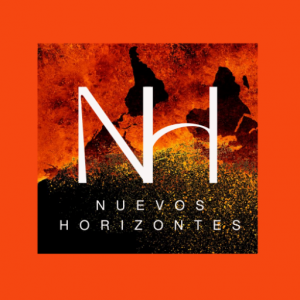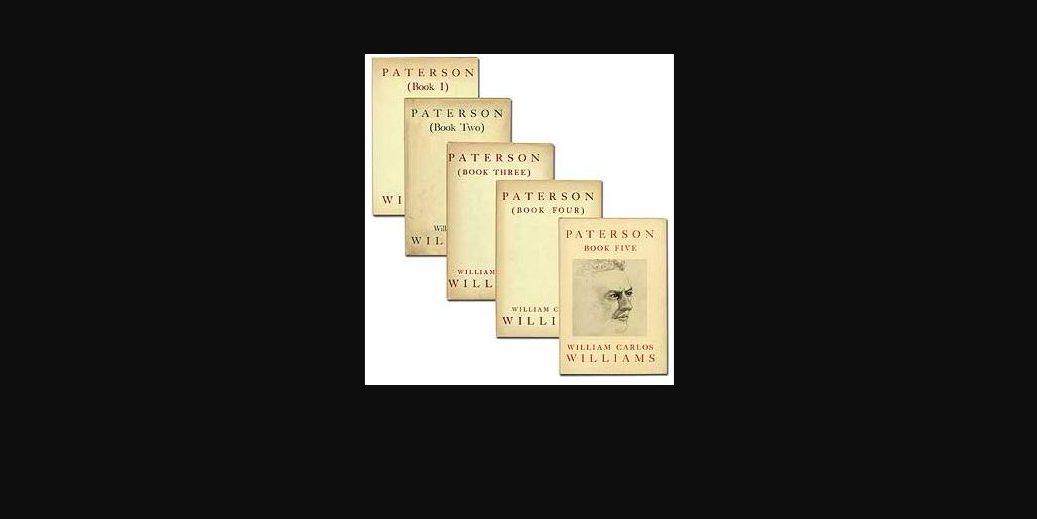Summary:
In “[M]y ‘case’ to work up’: William Carlos Williams’s Paterson” (William Carlos Williams Review, Volume 41, Number 2, 2024), Walter Scott Peterson argues that as a physician-poet Dr. Williams approaches his poetic material very much as he approaches his patients, and that the form of Paterson in particular is intentionally and actually reminiscent of the various forms taken by the medical case narrative, or “work-up.”
This episode concerns the poet and physician William Carlos Williams, whose mother, Raquel Hélène Rose Hoheb Williams, was born and raised in Mayagüez, Puerto Rico. This conversation is part of the STEM to STEAM initiative, sponsored by the Teagle Foundation, that links medicine, science, technology and engineering to the sensibilities honed in the humanities—rethinking ways to blend and combine studies in literature, poetry, history, philosophy, and the arts as more central dimensions of technical preparation.
The discussion explores the profound connection between medical humanities and poetry, highlighting how their combination enriches our understanding of patient care, fosters empathy, and humanizes the medical experience. Medical humanities is an interdisciplinary field combining arts, literature, philosophy and cultural approaches to the human condition—considering each of these as insights into the emotional and ethical dimensions of healthcare. Poetry can serve as a powerful tool for expressing the complex feelings and narratives that often go unspoken in clinical settings. Blending poetry and the science of healthcare reminds us that medicine is not just a science but also an art, emphasizing compassion, understanding, and the shared human experience at the heart of healing.
In this episode are:
• Walter Scott Peterson is a retired ophthalmologist and William Carlos Williams scholar; he is the author of the first book-length study of William Carlos Williams’s epic poem Paterson, titled An Approach to Paterson (Yale, 1967).
• Vamsi Koneru is a Professor in the Department of Psychiatry in the University of Connecticut School of Medicine.
• Jeffrey Herlihy-Mera, Professor of Humanities at the University of Puerto Rico-Mayagüez.
![]()

—



Poet-doctor William Carlos Williams weaves words like a healer mends—delicately, precisely, with a touch of solidity. His poetry is clinical: tender examinations of the essence of moments often overlooked, transforming the mundane into a symphony of meaning. Just as a doctor listens to the heartbeat of a patient, Williams listens to the pulse of the city, its people, the quiet whispers of flowers, the silent stories of ordinary people. His minimalism is beauty. This conversation added new depths and details to think about! Thank you for it. This type of criticism (is a podcast criticism yet?) can reset, give one pause. These three are sharp, honest, and I could sense their respect for what WCW was trying to do–bring poetry that knows true wellness begins with attentive, honest observation.
Escuchar este episodio del podcast me dejó profundamente conmovida. La manera en que William Carlos Williams fusiona su trabajo como médico con su poesía me parece fascinante, conmovedora y parapelos. Me sorprendió darme cuenta de cómo alguien puede observar la vida con tanta precisión científica y, al mismo tiempo, transformarla en arte que toca directamente el corazón. Es el vivo ejemplo de unos mis dos pasiones, la ciencia y el arte. Cada paciente, cada detalle, se convierte en una oportunidad para reflexionar y crear. Los datos de la ciencia son detalles llenos de valor, pero la empatía humana también lo es.
Lo que más me impactó es cómo Paterson refleja la experiencia humana de forma tan auténtica, como si cada verso fuera un diagnóstico emocional y espiritual. Es un podcast que transmite paz. Me hizo pensar en la importancia de combinar conocimiento y sensibilidad para comprender mejor la vida y las personas. Este podcast me recordó que la medicina y el arte no son caminos separados; ambos tienen el mismo objetivo sanar y conectar las personas.
Este podcast me pareció muy interesante porque muestra cómo la medicina y la poesía pueden unirse para entender mejor la experiencia humana. La discusión sobre William Carlos Williams demuestra que un médico también puede ser artista y que ambas disciplinas se complementan. Me gustó cómo se explicó que la poesía ayuda a expresar emociones que muchas veces no se pueden decir en el ambiente médico, humanizando así la atención del paciente. La iniciativa STEM to STEAM me parece esencial, ya que integra la sensibilidad artística con la ciencia, recordándonos que curar no solo es cuestión de conocimiento, sino también de empatía y conexión humana. Además, me pareció inspirador como se destacó la importancia de ver la medicina como un arte, no solo ciencia. Este enfoque humano puede mejorar la comunicación entre médicos y pacientes. Esto fomenta que los profesionales de la salud sean más sensibles y comprensivos. El episodio muestra que el arte puede sanar tanto como la ciencia.
El podcast “[M]y ‘case’ to work up’: William Carlos Williams’s Paterson” explora la conexión entre la medicina y la poesía en la obra del poeta y médico William Carlos Williams. Muestra cómo su poema Paterson se asemeja a un “caso clínico”, analizando tanto la sociedad como el ser humano con una mirada sensible y crítica. El episodio invita a reflexionar sobre la unión entre ciencia y arte, y sobre cómo ambas pueden ayudarnos a entender y cuidar mejor el mundo y a nosotros mismos.
En mi opinión, este enfoque interdisciplinario es muy interesante porque demuestra que la creatividad y el conocimiento científico pueden complementarse, ofreciendo nuevas formas de pensar y de apreciar la realidad.
En el podcast “My Case to work up”, me pareció una reflexión muy enriquecedora sobre cómo la medicina y la literatura se pueden complementar. Me llamó mucho la atención cómo el autor logra observar la vida con la mirada de un médico, pero expresarla con la mirada de un poeta. Su obra nos deja saber que el arte también puede servir para sanar las emociones y la mente. Adicionalmente, el episodio resalta la influencia de las raíces puertorriqueñas, algo que me pareció bastante significativo ya que nos muestra su identidad cultural y cómo le permitió tener una visión mucho más empática. En general, yo pienso que este análisis critico nos invita a valorar y a pensar la importancia de unir las ciencias con el arte, así recordándonos que ambas formas buscan comprender el ser humano desde diferentes puntos de vista. Escuchar el podcast me hizo pensar que la sensibilidad y las observaciones son parte de cualidades esenciales, tanto para un médico como para un escritor.
El episodio [M]y ‘case’ to wotk up by William Carlos William’s Paterson para mi pensar ofrece una perspectiva muy interesante sobre la unión entre la medicina y la literatura, ya que muestra como ambas disciplinas comparten el mismo propósito que es comprender y ayudar y sanar al ser humano. También me pareció muy interesante como Williams es médico y poeta y ve todo de dos lados uno científico y otro clínico. El ser puertorriqueño añade otra dimensión a su trabajó ya que nos recuerda que nuestras raíces culturales también influyen en la manera que entendemos a las personas, más bien esa compasión que uno tiene hacia los demás.
Me pareció muy interesante este podcast de Walter Scott Peterson, Vamsi Koneru y Jeffrey Herlihy-Mera. Yo jamás pensaría que un doctor, como lo es William Carlos Williams, también escribiera poesía. Era interesante cómo discutían que el rol de un médico con un paciente es un tipo de arte, y que por tal razón el Dr. Williams utilizaba su carrera para elaborar sus poesías. Cómo la poesía puede relacionarse con la medicina y facilitar el trato de médico a paciente; esto evidenciado en cómo la experiencia compartida de comunicarse en el mismo idioma (entre médico y paciente) fortalece la comunicación y la atención médica a recibir. Igualmente, me pareció interesante que el médico decía que su trabajo era ser doctor y que la poesía era para despejar su mente, para relajarse.
El podcast “‘[M]y ‘case’ to work up’: William Carlos Williams’s Paterson” presenta una reflexión profunda sobre cómo el poeta y médico William Carlos Williams logra unir dos mundos que muchas veces parecen opuestos: la medicina y la literatura. En la conversación se analiza cómo su obra Paterson se convierte en una especie de examen clínico o diagnóstico, no solo del cuerpo humano, sino también de la sociedad y de la experiencia moderna. Me pareció muy interesante cómo se plantea que Williams veía la poesía como una herramienta para observar, comprender y sanar, del mismo modo que lo haría un médico con sus pacientes.
El episodio también resalta la influencia de su identidad cultural puertorriqueña, que le dio una visión más diversa y humana de su entorno. Escuchar este análisis invita a reconsiderar la relación entre ciencia y arte, mostrando que ambas pueden complementarse para ofrecer una comprensión más completa del ser humano. En general, el podcast promueve una mirada más sensible, crítica y empática hacia la práctica médica y hacia la creación artística.
En el episodio presentado por William Carlos toma en consideración relacionar el arte de la medicina junto con el arte de la poesía. Logró demostrar como por ambas áreas podía presentar maneras de sanar a un individuo. Sus poemas eran presentados de una manera que era similar a un caso clínico debido al backround que anteriormente tenia como medico. William componía sus obras con un pensamiento lleno de sensibilidad y compasión por el prójimo, al igual que en busca de la sanción. Dentro de dicho poema se presenta como ocurre una perdida de humanidad y espiritualidad, afectando drásticamente a la cuidad, por lo que William lograba buscar una cura por medio del diagnostico social.
Este episodio contempló la integración de la medicina y las humanidades usando la vida y obra del poeta y médico William Carlos Williams como punto de partida. La madre de Williams era de Mayagüez, Puerto Rico. En su artículo, Walter Scott Peterson argumenta que Williams abordó su poesía como una práctica clínica, tratando su poesía con la misma dedicación que utilizaba con sus pacientes. Su poema Paterson es una reflexión de esa práctica clínica de la poesía y está estructurado como una historia clínica o evaluación médica.
Este diálogo es parte de la iniciativa STEM a STEAM apoyada por la Fundación Teagle. Su objetivo es combinar Ciencia, Tecnología, Ingeniería y Medicina (STEM) con las Artes, la Literatura y la Filosofía (STEAM). Se enfatiza que la práctica de la medicina no es solo un ejercicio técnico o biológico; también implica ternura y comprensión emocional.
Al examinar la relación entre la poesía y la medicina, los panelistas, Peterson, Vamsi Koneru y Jeffrey Herlihy-Mera, muestran la manera en que las humanidades permiten humanizar la medicina, facilitando a los profesionales la conexión con el sufrimiento, las historias y la dignidad de cada paciente. En un sentido más amplio, este episodio se enmarca en la consideración de que, en el proceso, el arte de la medicina se asocia con el acto de curar, donde la técnica se conjuga con la compasión y la imaginación en una dimensión más completa y humanizada del cuidado.